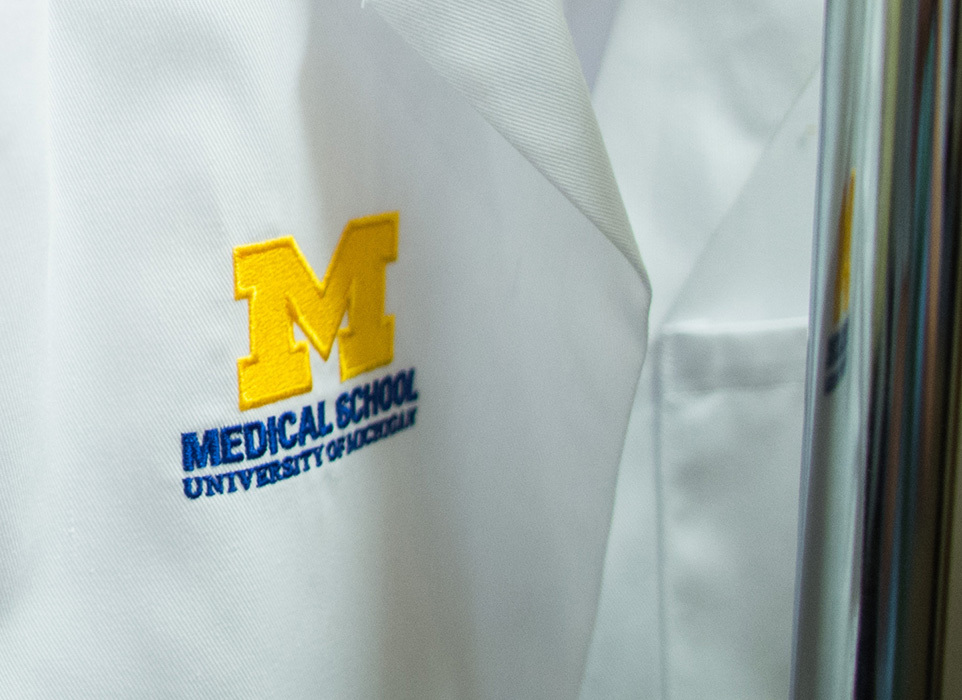
Available to mentor

Dr. Ljungman has a long-standing interest in carcinogenesis, radiation biology, DNA damage responses and regulation of transcription. A major goal of the lab is to elucidate basic mechanisms that ultimately could help better understand human diseases and in the development of improved therapeutics. The Ljungman lab has developed the Bru-seq technology platform to assess nascent RNA synthesis and stability in cells as well as splicing kinetics, transcription elongation rates and the mapping of transcription start sites and enhancers. These techniques provide novel information about the transcription process that cannot be obtained with traditional steady-state RNA-based approaches. The Ljungman lab is participating in ENCODE 4 as a Mapping Center.
-
Postdoctoral fellowStanford University, United States, 1994
-
Center MemberCenter for Computational Medicine and Bioinformatics
-
Center MemberRogel Cancer Center
-
Center MemberPrecision Health Initiative
With the Bru-seq technology platform, the Ljungman lab are exploring many basic biological pathways involved in DNA damage and repair, acute cellular responses, epigenetics, differentiation, aging, cancer, neurodegenerative diseases such as ALS and autism. They are also collaborating with medicinal chemists to interrogate mechanisms of action of novel therapeutic drugs and are developing specific inhibitors of the RNA exosome as cancer therapeutic drugs. With the Bru-seq techniques, the Ljungman lab collaborates with many labs at the university and from over 10 different countries. The Ljungman lab has also developed a CRISPR-based precision approach called "KLIPP" for specific targeting of cancer cells without affecting normal cells. The CRISPR reagents will target structural variants that are unique to the tumor cells.
-
Ljungman M. 2025 Jul 14;PresentationUsing CRISPR to Target Cancer
-
Ljungman M. 2025 Mar 7;PresentationKLIPP - Using CRISPR to Target Cancer
-
Mittal P, Myers JA, Carter RD, Radko-Juettner S, Malone HA, Rosikiewicz W, Robertson AN, Zhu Z, Narayanan IV, Hansen BS, Parrish M, Bhanu NV, Mobley RJ, Rehg JE, Xu B, Drosos Y, Pruett-Miller SM, Ljungman M, Garcia BA, Wu G, Partridge JF, Roberts CWM. Nat Commun, 2024 Aug 24; 15 (1): 7303Journal ArticlePHF6 cooperates with SWI/SNF complexes to facilitate transcriptional progression.
DOI:10.1038/s41467-024-51566-5 PMID: 39181868 -
Horst EN, Cotter LR, Bonini M, Novak CM, Treacher NM, Zhang Y, Jackson ZF, Narayanan IV, Fischer ZS, Sunshine AR, Lin Z, Tran LA, Ljungman M, Maturen KE, DiFeo A, Nordsletten DA, Mehta G. 2024 Oct 15;PreprintAscitic Shear Stress Activates GPCRs and Downregulates Mucin 15 to Promote Ovarian Cancer Malignancy.
DOI:10.21203/rs.3.rs-5160301/v1 PMID: 39483899 -
van den Heuvel D, Rodríguez-Martínez M, van der Meer PJ, Moreno NN, Park J, Kim H-S, van Schie JJM, Wondergem AP, D'Souza A, Yakoub G, Herlihy AE, Kashyap K, Boissière T, Walker J, Mitter R, Apelt K, de Lint K, Kirdök I, Ljungman M, Wolthuis RMF, Cramer P, Schärer OD, Kokic G, Svejstrup JQ, Luijsterburg MS. 2024 Jul 22;PreprintSTK19 facilitates the clearance of lesion-stalled RNAPII during transcription-coupled DNA repair.
DOI:10.1101/2024.07.22.604575 PMID: 39091731 -
Ljungman M. 2024 Jun 12;Journal ArticleIsoform and pathway-specific regulation of post-transcriptional RNA processing in human cells
DOI:10.1101/2024.06.12.598705 -
Bedi K, Magnuson B, Narayanan IV, McShane A, Ashaka M, Paulsen MT, Wilson TE, Ljungman M. 2024 Jun 12;PreprintIsoform and pathway-specific regulation of post-transcriptional RNA processing in human cells.
DOI:10.1101/2024.06.12.598705 PMID: 38915566 -
Ljungman M. 2024 May 17;PresentationTargeting Cancer with CRISPR